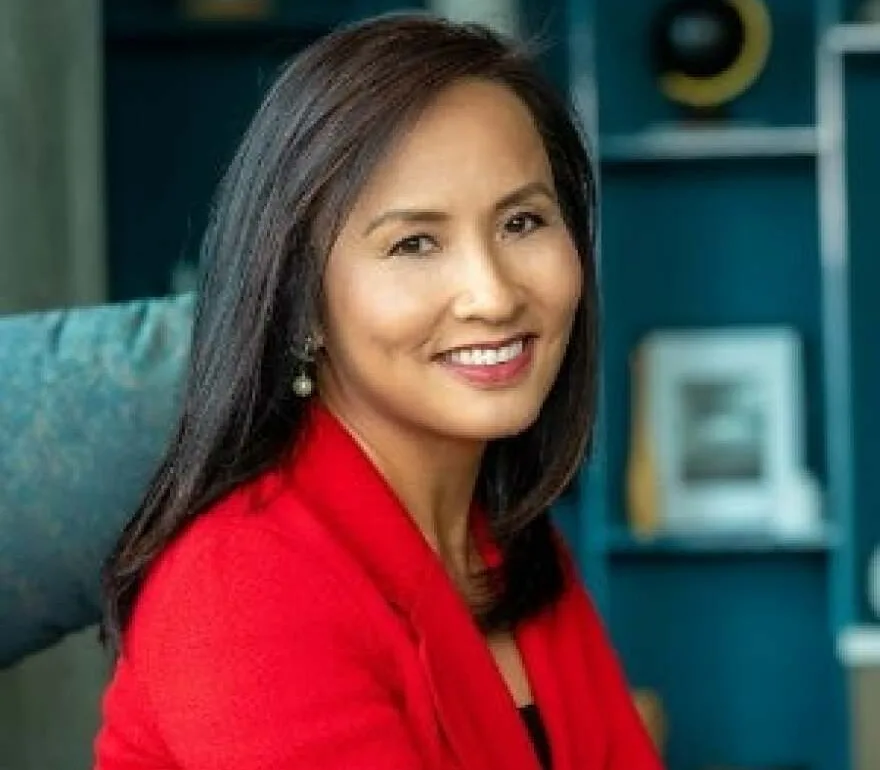Austinite Ying McGuire, the president and CEO of the National Minority Supplier Development Council (NMSDC), is the latest guest on In Black America. As the first non-Black and first Asian CEO in council’s 51-year history, McGuire is in charge of elevating and growing businesses operated by people who have been systemically excluded from entrepreneurship, specifically communities of color.
She got her start with Austin-based Dell Technology in 2000 and became their spokesperson for small businesses owned and operated by women, people of color, veterans and disabled people. McGuire’s success with the company led her to serve on the United States Investment Advisory Council for former Secretary of Commerce Penny Pritzker during the Obama administration and the International Trade Center Advisory Board from 2011 to 2018.
She spoke with host and producer John L. Hanson Jr. about her upbringing, how being in Austin has steered her career and why it’s important to keep people of color at the forefront of business leaders’ minds. An excerpt of this conversation can be found below.
This transcript has been edited for length and clarity.

Courtesy of Ying McGuire
On her upbringing in China and why she came to America
I was born and raised in China during the Cultural Revolution, and many people say it’s one of the darkest of periods in China. We had very modest living, drawing water from wells and, you know, cooked food from coal stoves. … We were considered as a marginalized, underprivileged group because my parents were educated during the Cultural Revolution. When the new leader Deng Xiaoping came to power, he launched a market economy, and he basically said those who previously didn’t have the privilege to go to college, now you can.
Because of the market economy, my family started a textile manufacturing business. Within a matter of a few years, we went from under the poverty to a great life. [After graduating college], my family’s doing well financially eventually, but something was missing. And then that feeling became overwhelming in the wake of the Tiananmen Square incident. I packed up my life into one suitcase, $1,000, very little English, and moved here to pursue my American dream.
On how she helps connect minority-owned businesses in America to a global market
When we buy, we buy hundreds of millions and billions and all over the world. And if a MBE [minority business enterprise] only can serve one little geographical location, they may be phased out. Right? So my platform was, “Hey, let’s go global to mirror your corporate customers’ global sourcing strategy.” … You know, we helped create those organizations in foreign countries that wish to emulate our practice, to lift underprivileged communities through entrepreneurship, through supply diversity.
On bringing another Austinite into the National Minority Supplier Development Council
Earlier this year, I actually brought on an Austinite, Fang Fang, who previously was the CEO of the Greater Austin Asian Chamber of Commerce. And so she transitioned and joined us and now she’s leading the global program. We’ve got a global link program now. She added three more partners to our program. So now we have India, Brazil and Chile.
On helping other countries lift up historically underrepresented groups
Fang and I just took a trip to India, and we had some conversation with underprivileged, minority community India. They have a leader. And he actually was inspired by Martin Luther King [Jr.], he was inspired by Booker [T.] Washington’s Black capitalism model. And they have called a Dalit community, the “bottom 25% of the society.” He is working to lifting his community through the entrepreneurship and supply diversity, and so we’re partnering with him.
On what cities around the country are ripe for African American entrepreneurship
I say every city should be ripe for the African American businesses. And it requires leaders like us to see this, to develop Black businesses as economic development, not as a compliance.


